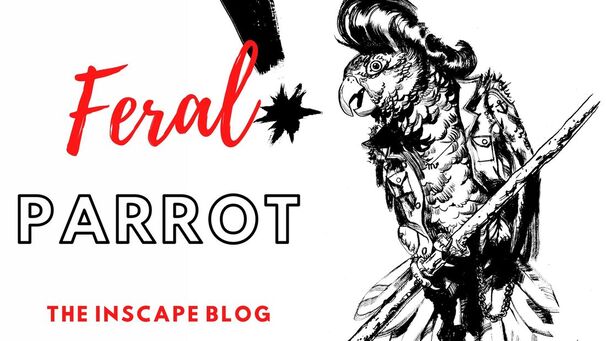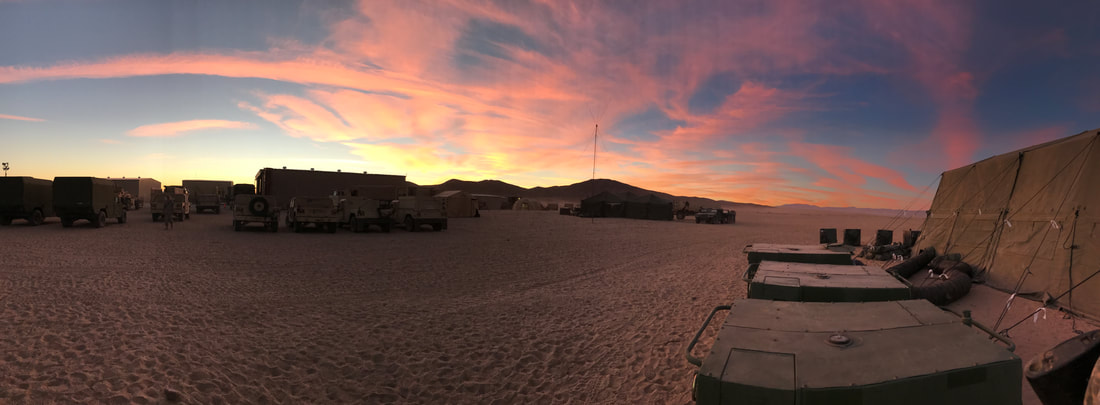- Folio No. 9
- About
- Feral Parrot : The Blog
- INTERVIEWS
- SUBMISSIONS
-
ISSUE ARCHIVE
- PRINT Chapbook No.6 Healing Arts
- Online Issue No.9
- Online Issue No.1 Fall 2016
- Online Issue No.2 Spring 2017
- ONLINE Issue No.3 Fall 2017
- PRINT Vol 72 No 2 Fall 2017
- PRINT Vol 73 No.1 Fall 2018
- ONLINE Issue No. 4 Fall 2018
- Online Issue No.5 Summer 2018
- FOLIO No.1 Fall 2018 VOTE
- ONLINE Issue No.6 Fall 2018 Fall Spirituality
- FOLIO 2 Fall 2019 Celebrating Dia De Los Muertos
- FOLIO No.3 -- Moon Moon Spring 2019
- FOLIO No.4 Celebrating New PCC Writers
- FOLIO No.5 City of Redemption
- FOLIO No.6 Spring 2020
- FOLIO No. 7 - Winter 2021 Into the Forest
- 2022 Handley Awards
- Inscape Alumni Board
- PRINT Chapbook No. 7 Healing Arts
- Blog
- Untitled
Written by John GenskeIn 2017, I conducted an interview with Marine Cpl. Nathan Kemnitz. Kemnitz, a Texas native, who moved to Pasadena in 2011 and attended Pasadena City College through the veteran's program. This story is based on his life events and experiences as a member of the military: I lay in the dust, broken and splintered and bent, and the sun beat down on my head. The blast picked me up and threw me on my back, knocking the air out of my lungs. The sound from the explosion continued to scream in my ear. I lay there for some time before I could finally form words on my tongue. “Huston! Huston!” I yelled. I couldn’t see anything after the explosion. “Huston!” I yelled once again. He didn’t respond. I could feel the moisture dribbling down my temple. I pressed the pads of my fingers on the warm liquid and then instinctively held my hand to the front of my face, but I still couldn’t see anything so I didn’t know whether it was blood or sweat. I could hear the voice of the corpsman, Dexter, as he and a few others from our company approached. I heard Sergeant Taylor make the call on his radio to get a medevac ready. I sat up on my left knee and used my left arm to support my weight. The right half of my body was not responding to my efforts to move, like it had completely fallen asleep. That was the side of me facing the IED when the blast went off. Dexter tried to talk to me but I paid no attention. I didn’t respond to him, I just kept yelling for Huston. Huston was my best friend. We grew up in the same town, went to the same Lutheran high school, and then enlisted together the day we graduated. His full name was Seth Ryan Huston. He died that day, August 21st, 2004, on a road surrounded by a flat floodplain in Fallujah. Suddenly, I felt my head grow heavy. My neck relaxed and I reclined back into the dirt, staring into the sun. As I faded out of consciousness, I was certain that my death was greeting me. But I did not die. I was sent back to the states. I underwent 25 operations to clean out and reconstruct both my right arm and leg. My right arm was permanently paralyzed and my right leg was severely handicapped. Despite the cataracts that the blast gave me, which caused my initial loss of sight, I regained vision in my left eye. Shrapnel from the IED left my right eye permanently blind. In the following weeks I asked the nurses and doctors about Seth. “He’s doing fine,” they responded each time. I had been in the hospital for a month before Sergeant Taylor came to visit me. I was eager to know about Seth’s whereabouts. “Sergeant, have you visited Seth yet?” I asked him. He paused for a moment, fixing his posture upright. As he drew in a deep breathe, I felt my diaphragm compress around my heart as if he had siphoned the very air from my lungs. “Nathan,” he looked up from his tan combat boots, “when the IED detonated, Seth was practically on top of it. He didn’t have a chance. Even if,” he paused, pursing his lips before resuming, “even if he’d somehow survived, I don’t know the kind of life he’d live. I’m sorry no one told you yet. I guess, no one here wanted you to have to undergo anymore strain.” The hospital room was silent. He stayed standing next to my bed for a while. I stared at my distorted reflection on the rounded aluminum bars of my bed frame. My mind swam in the memories leading up to the explosion. I saw it from every angle, every point of view. I imagined the blast surge from the floor into a mushroom of dirt and debris, swallowing Huston in the blink of an eye. For the next two and a half years I recovered in a Naval Hospital in Maryland. The doctors didn’t know how to prescribe painkillers, so they figured more were better than less. They just wanted to drown out our pain. They made sure we dealt with as little discomfort as possible. During the days we drank ourselves into a haze at the bowling alley. We quarreled with locals and were arrested as often as tracer rounds light up the Al Anbar night sky, though the police always brought us back to the hospital. At night we muddled our minds with the miscellaneous pills and prescriptions that we shared from cot to cot. We traded in our medals for morphine. We numbed our pain with naxolone. We floated in clouds made of oxycodone. We implored these methods to escape our realities; though we all arrived at the same inexorable conclusions. War was a lie. It was no great unifier. It was not glorious. It was a pension and painkillers. The war tried to kill us, and when we were sent home on a stretcher with our loved ones in body bags, the war raised its hand with the rising sun and waved to us goodbye. John Genske is a student at Pasadena City College majoring in Geography. John says: "I draw inspiration from authors like Kevin Powers and Tim O'brien who seek to spread awareness on the horrors of war."
1 Comment
Roger Olin
8/14/2022 08:40:52 am
I just read the story about Marine Cpl. Nathan Kemnitz. I have been looking for a handicapped decorated Marine. I am a Marine myself that served 1958 to 1961. I would like to help Nathan. I have a collection of 1 st day of issue envelopes and other interesting old stamped envelopes. This is a very nice hobby and since I am now 83 years old I would like to give thanks to Nathan as a fellow patriot. Will you please help me make contact with Nathan. If he is interested I would like to donate this collection to him so he can have hours of enjoyment in his recovery. Sincerely Roger Olin 949-859-9664 or email me at [email protected]
Reply
Leave a Reply. |
IMPORTANT NOTE:
PCC Inscape Magazine, housed at Pasadena City College, is following Coronavirus protocols. At this time our staff continues to read submissions and publish web content. Note:
Blog Posts reflect the opinions of the writer and not the opinions of Pasadena City College or Inscape Magazine Editorial Staff Members. Archives
December 2023
Categories
All
|




 RSS Feed
RSS Feed